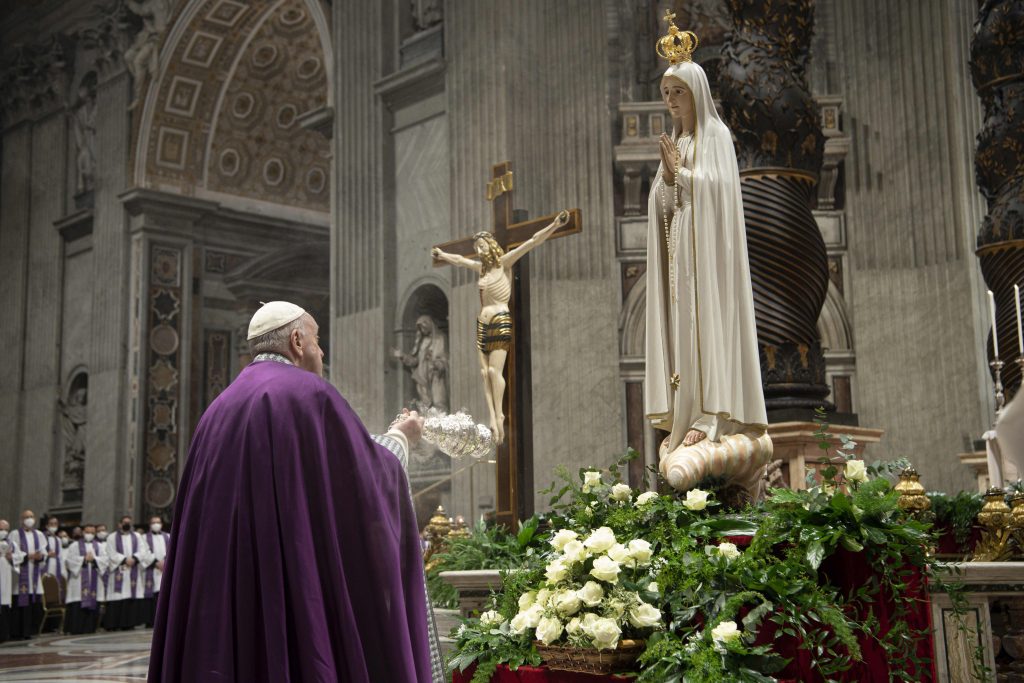A hundred and five years ago this month, the Virgin Mary appeared to three shepherd children in the little town of Fátima, Portugal. She confirmed the sense of crisis that was sweeping Europe. She spoke words of comfort, but also words of warning. The century ahead would be a time of unprecedented trial.
The month before the first apparition, the United States had declared war on Germany — entering the conflict that was then consuming the continent. The continental conflagration became something entirely new: a world war.
Two months earlier, on March 15, the Russian monarch, Tsar Nicholas, had abdicated the throne at the end of the February revolution. The first communist state was now coming into existence.
It was at Fátima in 1917 that Our Lady asked for the pope to consecrate Russia to her Immaculate Heart.
Pope Pius XII followed through on this request in 1942, and 10 years later he reinforced his consecration with a papal bull. St. Pope Paul VI also made a consecration, as did St. Pope John Paul II (twice) and Pope Emeritus Benedict XVI. One of the Fátima visionaries, Sister Lucia, stated that St. John Paul’s 1984 consecration had fulfilled all the conditions of the Blessed Mother’s request.
Yet now we find ourselves, once again, with our world in turmoil. War threatens the European continent, and Russia is at the center of the conflict.
And the vicar of Christ has made the consecration again, this time in union with his predecessor, Pope Benedict, and all the bishops of the world. Millions of Christians joined their private and public prayers to those of Pope Francis.
Never in my experience as a Catholic have I seen anything approximating this gesture — a consecration in face of crisis, during Lent, on the feast of the Annunciation, involving the entirety of the Catholic hierarchy.
But, unless we see with eyes of faith, it seems so little. News reports daily remind us of nuclear stockpiles whose smallest weapons have a destructive capacity far greater than the bombs dropped on Hiroshima and Nagasaki in 1945. Our temptation might be to echo Josef Stalin, who once asked how many divisions the pope commanded.
Yet you and I do have faith, and so we see beyond the bluster of tyrants. We see the purpose of crises in the divine plan. We know that all things work together for our good (Romans 8:28) and that God is using this moment to move his people to repentance and prayer, to gather his people to unity and witness.
By military measures, the Church seems to have no resources whatsoever. But through these events God is telling us what he told St. Paul: “My grace is sufficient for you, for my power is made perfect in weakness” (2 Corinthians 12:9).
We must not allow ourselves to doubt the power of the prayer that has risen to heaven — prayer that was called forth by the mother of God.

